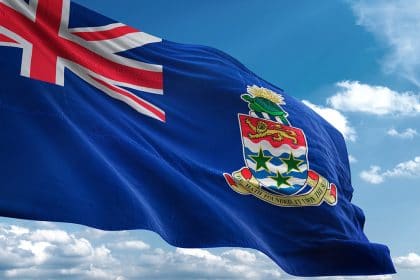The Ministry of Financial Services of the Cayman Islands defined Virtual Asset Service Providers to include cryptocurrency service providers which include but not limited to cryptocurrency exchanges, wallet service providers amongst others.
The Ministry of Financial Services of the Cayman Islands has announced that it has commenced the regulations of Virtual Asset Service Providers (VASPs) in the country. Per the official press release by the Ministry, the regulatory oversight extends to the Virtual Asset Service Providers is necessary to attract persons and entities who have an interest in such businesses that deal with virtual assets.
The need to comply with the Financial Action Task Force (FATF) on core financial transaction standards including anti-money laundering, as well as the much-acclaimed “travel rule”, which requires VASPs to collect and share personal data on the originator and beneficiary of transactions. The Cayman Islands are making the run to be recognized by the FATF and thus, the essence of these new regulations for VASPs.
In the announcement, the Ministry of Financial Services defined Virtual Asset Service Providers to include cryptocurrency service providers which include but not limited to cryptocurrency exchanges, wallet service providers amongst others.
“The regulatory framework for VASPs will commence in two phases. Phase one, which begins 31 October, will focus on anti-money laundering (AML) and countering the financing of terrorism (CFT) compliance, supervision, and enforcement,” the press release reads. “Current VASPs and new entrants will need to notify and register with the Cayman Islands Monetary Authority (CIMA). Phase two, which will include licensing requirements and prudential supervision, is expected to come into force in June 2021,” the authorities added.
The Cayman Islands will propose a Virtual Asset Service Provider Amendment Bill (2020) that will detail the gradual roll-out of the regulations. This Bill is set to be presented at the next plenary session of the country’s Legislative Assembly. Ultimately, the regulations will seek to align companies in the region with the CFP, AML, and CFT rules, according to the Ministry.
Cayman Islands Joins the Bandwagon in FATF Compliance Race
The role of the FATF as the global AML and financial transparency watchdog has prompted every industry and jurisdiction involved in financial transaction service provisions. The move by the Cayman Islands to regulate the VASPs that are already proliferating the region will further complement the country’s efforts to earn better financial transaction goodwill from global regulators. Cointelegraph reported that the nation was removed from the European Union’s Tax Haven Blacklist.
Besides the Cayman Islands, private organizations are also devising means to stay ahead of the FATF regulations and Coinspeaker reported earlier that The Travel Rule Protocol (TRP), a working group backed by Standard Chartered, Fidelity, ING, and about 22 other firms involved in cryptocurrency transactions has unveiled an Anti-Money Laundering tool dubbed TRP API version 1.0.0.
Per the report, the tool is geared toward helping every firm, ranging from banks to crypto exchanges and others that are collectively known as Virtual Asset Service Providers (VASPs), comply with the Financial Action Task Force (FATF) rule on sending AML data known as the Travel Rule.
Benjamin Godfrey is a blockchain enthusiast and journalists who relish writing about the real life applications of blockchain technology and innovations to drive general acceptance and worldwide integration of the emerging technology. His desires to educate people about cryptocurrencies inspires his contributions to renowned blockchain based media and sites. Benjamin Godfrey is a lover of sports and agriculture.




